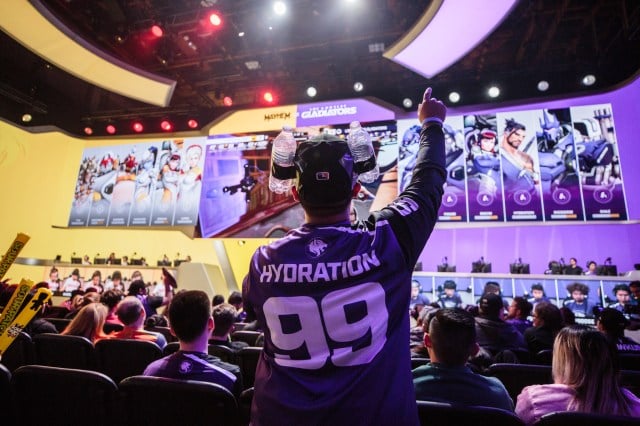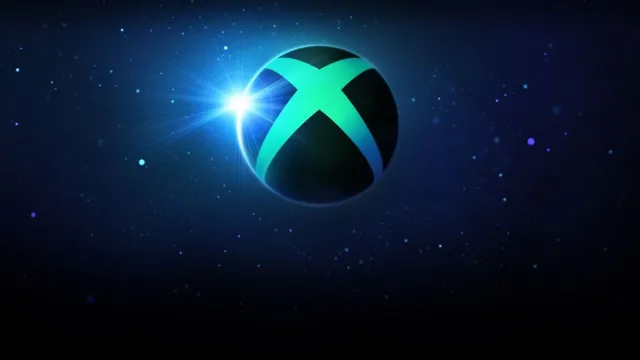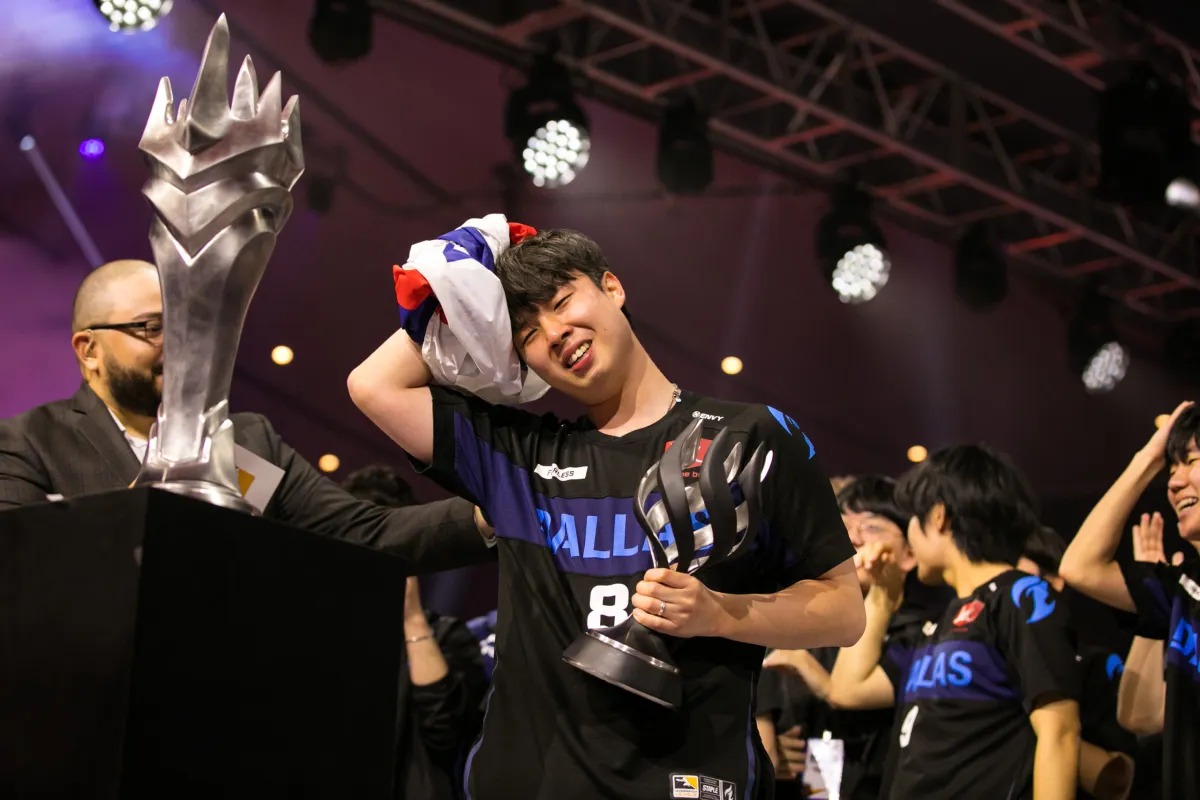The Overwatch League has been shrouded in uncertainty for almost the entirety of 2023, and now that this year’s season is over, there’s considerable concern among fans that OWL is ending.
Those fears are well-founded; news broke earlier this season of dire financial straits for teams, lay-offs, and an impending owner vote on whether to continue the league past this season or to pull the plug. There were even discussions that the league reportedly had with other tournament organizers that cast further doubt on OWL’s future.
So, is it over for the Overwatch League?
Is the Overwatch League ending in 2023?
We don’t know for sure yet, but reports from various outlets and statements made by the league itself make it sound like the Overwatch League, at least in its current form, will most likely end.
The league’s social post on Oct. 2 spoke about “building a vision of a revitalized esports program” which is not yet final. But this language, in tandem with previous news about the league, does make it seem like Overwatch esports will get a drastic makeover going forward.
There was also an air of finality in the OWL Playoffs broadcast over the weekend, and several staff members’ posts on social media have all combined to give the impression that the Overwatch League isn’t about to make a triumphant return next season.
There very well may still be an “Overwatch League” next year in some form, but it could also be the case that it looks so different from OWL as it’s come to be over the last several years that it’s effectively a new competition altogether.
Why is the Overwatch League ending?
Generally speaking, the Overwatch League is most likely ending due to money. But there are a lot of different parties and moving parts involved in those money concerns.

OWL teams aren’t making as much money as owners thought they would
The Overwatch League was the well-documented brainchild of Activision Blizzard CEO Bobby Kotick, who dreamed of having an esports league that could look like and eventually even rival traditional American sports franchises.
There were hefty franchise fees to get a spot in the league, and Kotick’s vision attracted well-known organizations and individuals across both esports and traditional sports. Everyone from OpTic/Team Envy to New England Patriots owner Robert Kraft got involved.
Those big franchise fees were never met with the return on investment that Kotick and Blizzard preached to owners, and those same owners eventually sought out legal representation to renegotiate their terms with Blizzard. Blizzard actually had to waive much of those outstanding fees from owners, but the damage had already been done.
So, in the most simple terms, part of why OWL might shut down is because it’s not making enough money for the people who pay the bills, and those owners are ready to cut their losses.
Microsoft’s Activision Blizzard acquisition is looming
Another money concern is Microsoft’s ever-pending purchase of Activision Blizzard and how that affects Activision Blizzard’s esports leagues like OWL and the Call of Duty League.

Both leagues have dealt with a heavy amount of uncertainty over the past year in terms of revenue, viewership, and media deals, and whenever new ownership comes into a company, restructuring and cutting are commonplace. We don’t know the extent of Microsoft’s plans for esports or whether they want to leave Activision Blizzard to their own devices when it comes to their esports leagues, but it’s possible that part of why the Overwatch League would end would be Microsoft wanting to cut some costs in the company.
Overwatch League 2024: What could the future of Overwatch esports look like?
If Activision Blizzard continues to support Overwatch esports in some form or fashion, it seems like a very good bet that the new system will be much more open, in addition to measures that will ultimately cost Activision Blizzard less money.
One of the most obvious ways Overwatch esports could change in order to continue competition next year would be to get rid of OWL’s franchising model. This would likely mean the end of the league’s naming conventions for teams, with city names and nicknames, and esports organizations that remain invested in Overwatch would simply rebrand their teams to match the org’s branding once again.
This was how Overwatch esports began, with teams like Lunatic-Hai, EnVyUs, Runaway, Cloud9, and more forming fanbases with early successes (and in C9’s case, one extremely notable type of failure).
If Overwatch esports did get rid of franchising, it would remove several barriers for organizations to get involved in OW.
There’s also the possibility that Blizzard could surrender organizing Overwatch competitions completely to third-party organizers. This would also feel like a throwback to the earliest days of Overwatch competition, with tournaments like Korea’s APEX series and independent Major-like tournaments forming the bulk of serious competition. Doing this would likely free Activision Blizzard from a lot of organizational costs that they’ve incurred through running their own franchised league.
We don’t know exactly what Overwatch esports will look like in the future, but it’s a good bet that OWL fans will find out in the coming months.

